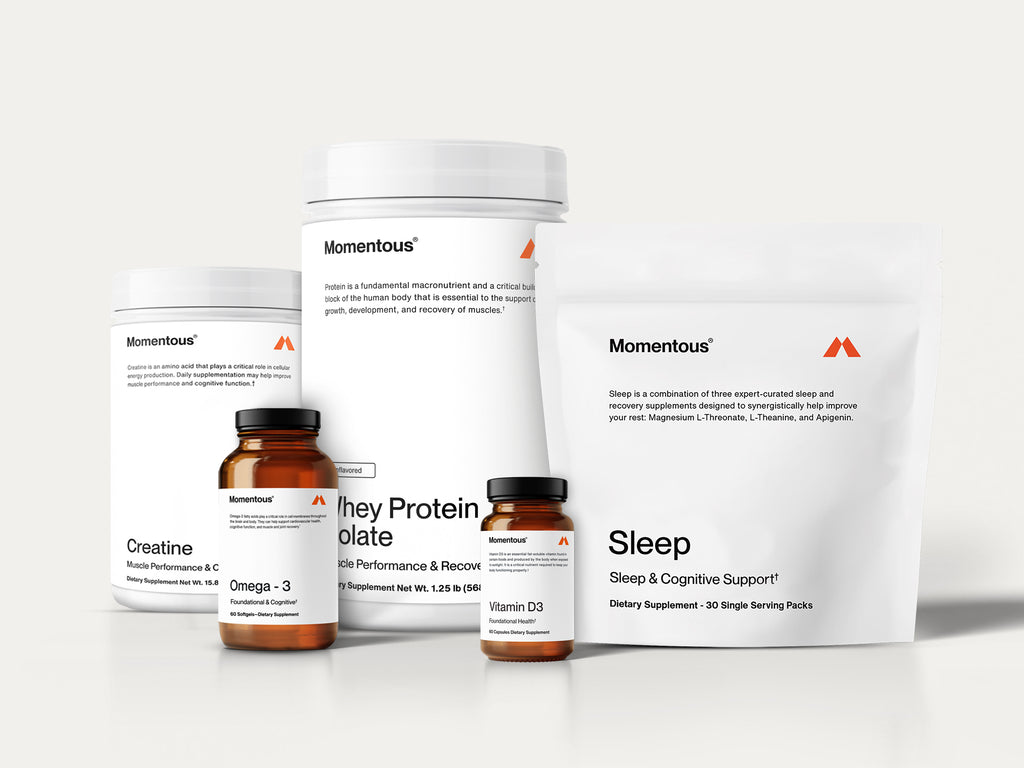Why are oysters considered an aphrodisiac? People have believed these aquatic mollusks could increase your sex drive and light up your libido for hundreds of years. While this little pearl of wisdom may be controversial, it does have at least some scientific support. Oysters are rich in zinc, which plays a crucial role in many different processes in the body, including hormone production.
Let's shuck this topic open and help you understand the effects of zinc on hormones and how this vital mineral impacts your body.
What is Zinc?
Zinc is an essential mineral found in food and supplements. It's involved in many different processes in the body, including immune function, cell growth, wound healing, and protein synthesis (1). Zinc, prevalent in high quantities in the testes and prostate gland, is required for the proper development and function of reproductive organs. It's essential for the production of testosterone and other reproductive hormones, which is why zinc is often included in testosterone-boosting supplements.
While zinc is required for many different processes in the body, its role in hormone production is what we want to focus on here.
Zinc and Your Hormones
Zinc plays a key role in the endocrine system, which is responsible for producing and regulating hormones. The endocrine system includes the pituitary gland, thyroid gland, adrenal glands, and gonads (testes and ovaries). These glands produce hormones that regulate things like metabolism, growth, reproduction, and stress response.
Zinc is required for the proper function of all of these glands. It helps to regulate hormone levels and keep the endocrine system running smoothly. Zinc also plays a role in the production of enzymes that are involved in hormone metabolism. Zinc can help regulate how your body responds to and metabolizes hormones.
Recent research has shown that testosterone levels are negatively impacted by zinc deficiency and other vitamins and minerals (2). Others have shown that supplementing with zinc can increase testosterone, provided you have a zinc deficiency (3). While the process is slightly different, researchers have found that insufficient zinc will also negatively affect women's testosterone levels. (4) Although women have less testosterone than men, when normalized for certain factors, their testosterone level is higher than any other hormone, including estrogen.
Getting Enough Zinc
Getting enough zinc is essential for maintaining a healthy endocrine system and proper hormone function. You can get zinc from food or supplements. Good sources of zinc include oysters, beef, lamb, pumpkin seeds, cashews, and chickpeas. Additionally, research shows that a primary reason for zinc deficiency is low zinc intake in the diet and poor absorption of zinc from eating plant-based diets rich in phytic acid, which can inhibit zinc absorption (5).
It's worth noting that adding more zinc won't boost your testosterone if you have adequate zinc levels. Only that not getting enough is likely to decrease testosterone levels. That said, with its numerous other benefits to the body, your zinc levels are worth keeping an eye on. If you take a supplement, choose one that's chelated or bound to another molecule for better absorption.
So, even if seafood isn't your thing, there are many other ways to ensure your hormones are producing correctly.
----(1) Maret W. Zinc in cellular regulation: The nature and significance of "zinc signals" Int. J. Mol. Sci. 2017;18:2285. doi: 10.3390/ijms18112285.
(2) Wrzosek, M., Woźniak, J., & Włodarek, D. (2020). The causes of adverse changes of testosterone levels in men. In Expert Review of Endocrinology & Metabolism (Vol. 15, Issue 5, pp. 355–362). Informa UK Limited. https://doi.org/10.1080/17446651.2020.1813020
(3) Prasad, A. S., Mantzoros, C. S., Beck, F. W., Hess, J. W., & Brewer, G. J. (1996). Zinc status and serum testosterone levels of healthy adults. Nutrition (Burbank, Los Angeles County, Calif.), 12(5), 344–348. https://doi.org/10.1016/s0899-9007(96)80058-x
(4) Mazaheri Nia, L., Iravani, M., Abedi, P., & Cheraghian, B. (2021). Effect of Zinc on Testosterone Levels and Sexual Function of Postmenopausal Women: A Randomized Controlled Trial. In Journal of Sex & Marital Therapy (Vol. 47, Issue 8, pp. 804–813). Informa UK Limited. https://doi.org/10.1080/0092623x.2021.1957732
(5) International Zinc Nutrition Consultative Group (IZiNCG), Brown, K. H., Rivera, J. A., Bhutta, Z., Gibson, R. S., King, J. C., Lönnerdal, B., Ruel, M. T., Sandtröm, B., Wasantwisut, E., & Hotz, C. (2004). International Zinc Nutrition Consultative Group (IZiNCG) technical document #1. Assessment of the risk of zinc deficiency in populations and options for its control. Food and nutrition bulletin, 25(1 Suppl 2), S99–S203.











